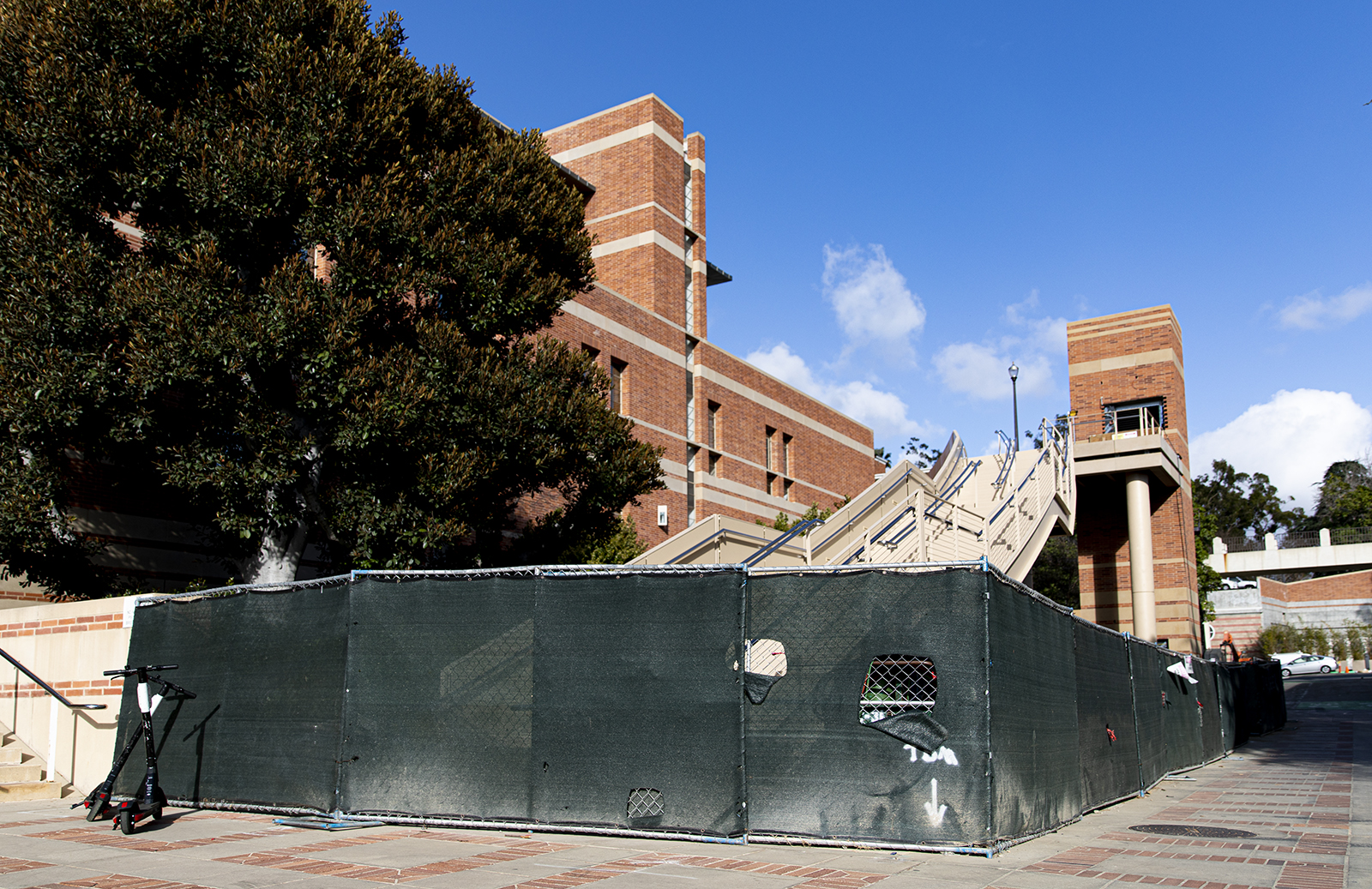Proposition 13 would provide the UC with $2B for construction

If passed, Proposition 13 would provide $2 billion to the University of California for construction and rehabilitation on its campuses. The remaining $13 billion of the bond will be provided to public pre-K-12 schools, California community colleges and the California State University system. (Daily Bruin file photo)

By Saumya Gupta
March 2, 2020 2:03 a.m.
A proposition on the California primary ballot could grant the University of California $2 billion for construction and modernization.
Proposition 13 is a school bond that would give $15 billion to public schools from the pre-K-12 level all the way up to higher education to improve education facilities, said California Assemblymember representing the 70th District Patrick O’Donnell, who co-wrote the bill. The money the bond provides to the UC would be used for the construction and rehabilitation of its campuses, O’Donnell said.
If passed, the bond would allocate $2 billion each to the UC system, the California State University system and California community colleges. The remaining $9 billion would go to public pre-K-12 schools.
O’Donnell said he thinks Proposition 13 will economically benefit Californians in the future.
“An investment in school facilities is an investment in the students, and an investment in the students is an investment in California’s future,” O’Donnell said.
If passed, this bond will be the first time the UC would receive a general obligation bond to improve facilities since 2006, according to the UC.
UC funding from the state has declined over the past couple of decades, said Alexander Astin, a professor emeritus in the Graduate School of Education and Information Studies.
“A lot of UC campuses have had to curtail their construction of new facilities because of a lack of funds from the state,” Astin said. “So I think certainly it will be beneficial to UCLA to get some more money to help with the (necessary infrastructure) that we have.”
State funding for education has also decreased across the board, from K-12 to higher education, he added.
“(It) seems to me that California has historically been a leader in education across the country,” Astin said. “And in the last few decades, that leadership has declined because of the lack of funding.”
The UC’s inability to renovate, retrofit and build new buildings is a major risk to students, said Varsha Sarveshwar, president of the UC Student Association.
“The most obvious (issue) is that if there’s an earthquake or something like that, (the campuses are) not a safe place for students to be,” Sarveshwar said.
According to the UCLA Seismic Safety Building Reports, 15 UCLA buildings, including Powell Library, the Luskin School of Public Affairs and Charles E. Young Research Library, were found to pose serious risks to life if a strong earthquake were to occur.
Disability access is also an issue, she added. If the UC is unable to renovate buildings or fix broken elevators, then campuses may become increasingly inaccessible for students with certain disabilities, Sarveshwar said.
Sarveshwar also said the lack of funding has made it difficult to respond to the increasing number of students in the UC.
“We have a lot more students at the University than we used to in years past and we haven’t really been able to grow our facilities in order to meet that increased need,” she said.
The proposition’s funding is vital for making sure that students at the UC have spaces that are unbiased, in good condition and safe, said government relations committee chair of UCSA and third-year global studies student Aidan Arasasingham.
Voting for Proposition 13 is one of the few ways UC students can work to improve their campuses and advance their own education, Arasasingham said.
“This measure really isn’t a political issue but an issue of whether we, as the state, should be investing in the spaces that we as students use,” Arasasingham said. “This vote is one of the most crucial ways students can exercise their civic rights in order to better their own lives on the UC campus.”
Opponents to the proposition argue that the bond pays for the renovations with taxes instead of using the state’s surplus, creates higher local property taxes and pushes local school districts further into debt by raising the debt limit on schools, encouraging them to increase borrowing.
Under the proposition, the only proposed plan for UCLA is to seismically improve Powell Library. However, the UCs are required to create a five-year plan to make more affordable student housing and deal with necessary maintenance in order to receive the proposition’s funding.
“My guess is that this is not necessarily going to have a huge impact on UCLA beyond whatever they do for affordable housing,” said Ozan Jaquette, an assistant professor in the Graduate School of Education and Information Studies. “It just doesn’t look like there’s much else happening for UCLA besides making Powell building more earthquake-proof.”
Jaquette added that a big weakness for the UC and UCLA is that there is no capacity for online education teaching and for the growth of online curricula, as the classrooms are not able to deliver online or hybrid courses.
In order to allow education to reach more of the world, the UC and UCLA need new infrastructure, he said. However, he said he thinks the UC and UCLA appear to have not prioritized this infrastructure, which likely won’t be changed with the extra funding.
However, Jaquette added that he thinks the bond has merits.
“There are buildings that are falling apart that need renovations just for safety,” Jaquette said. “As well as I’m sure K-12 and the university level need new construction in order to increase capacity for more enrollment.”

